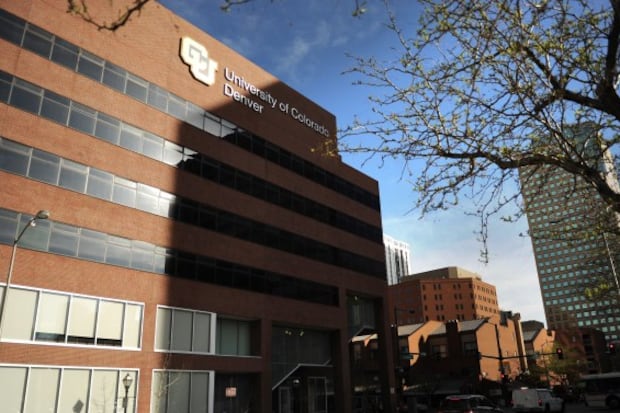The University of Colorado Denver and the university’s Anschutz Medical Campus in Aurora are now federally recognized as a Hispanic-Serving Institution, opening up access to multimillion-dollar grants to help attract and retain Hispanic students.
The U.S. Department of Education’s Hispanic-Serving Institution designation requires at least 25% of full-time undergraduate students to be Hispanic and for a substantial proportion to be eligible for federal Pell grants. At CU Denver, Hispanic students make up 26% of its 10,000 undergraduates.
University of Colorado Denver officials say the Hispanic-Serving Institution designation signals a continued shift to a mindset that values students’ culture, language, and background.
“How do we look at our students through an asset lens that they bring something to the organization that we lack right now?” said Antonio Farias, the university’s vice chancellor for diversity, equity, and inclusion.
To prospective students, he said the Hispanic-Serving Institution label is “very much like a beacon that says you belong here … You will not have to code-switch, you will not have to assimilate, you will not have to change your name.”
Farias said the designation is also a message to students’ families, from abuelas, or grandmothers, to small children, that they are welcome on campus, too — and not just at graduation time. As the sense of belonging grows, he believes Hispanic students will develop a stronger voice at the university.
Statewide, 22% of the population is Hispanic, with that share projected to grow to 33% by 2050.
With the addition of University of Colorado Denver, the state now has 11 Hispanic-Serving Institutions, about half of them community colleges. Adams State University, Colorado State University-Pueblo, and Metropolitan State University of Denver also have the designation.
The federal government offers three grant programs to Hispanic-Serving Institutions. Several Colorado colleges have won these grants in recent years. In September, Metropolitan State University announced two such awards, including a $2.9 million grant for its “SpaceTech Scholars” program, which aims to prepare more Hispanic students for jobs as aerospace and engineering technicians.
CU Denver is the first research university in Colorado to receive the Hispanic-Serving Institution designation. Farias said that’s important because research universities often get first dibs on major grants from places like the National Science Foundation and the National Institutes of Health, meaning the university will have access to big-dollar sums unavailable to many smaller Hispanic-Serving Institutions.
Farias said CU Denver is in the process of seeking another federal designation that would classify it as an Asian American Native American Pacific Islander-Serving Institution, but it’s not clear when that could come through. To earn that designation, at least 10% of a college’s undergraduate students must be Asian American and Native American Pacific Islander.







